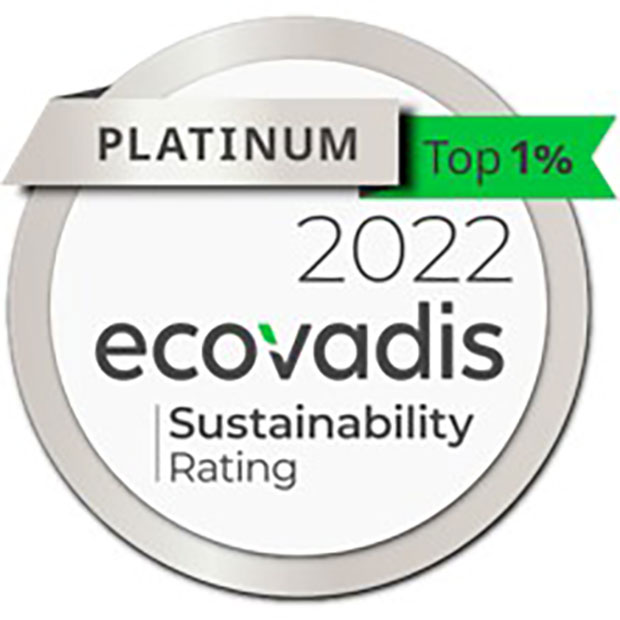CHEP Europe, the supply chain solutions company, has earned an EcoVadis Platinum Recognition Level for the second year in a row, for its sustainability achievements in 2021, the highest recognition of a supply chain supplier presented by the world’s most trusted business sustainability rating organisation.
 Ecovadis positions CHEP amongst the top 1% in the category ‘Renting and leasing of other machinery, equipment and tangible goods’. It evaluates 75,000 companies in 200 sectors across 160 countries. CHEP also achieved a ‘Leader’ level in Carbon Management for its best-in-class greenhouse gas ambition and management system, and EcoVadis Platinum recognition in Canada and Gold in USA.
Ecovadis positions CHEP amongst the top 1% in the category ‘Renting and leasing of other machinery, equipment and tangible goods’. It evaluates 75,000 companies in 200 sectors across 160 countries. CHEP also achieved a ‘Leader’ level in Carbon Management for its best-in-class greenhouse gas ambition and management system, and EcoVadis Platinum recognition in Canada and Gold in USA.
“We’re extremely proud to receive yet another recognition for our efforts in sustainability”, says Alejandro Tostado, CHEP Europe Sustainability and Government Affairs Lead. “Our vision is to pioneer regenerative supply chains. As leaders in the circular economy, we are striving to build a collective response to the biggest challenges of our time: the decarbonisation of the global economy and the regeneration of natural resources.”
This recognition adds to the list of sustainability rankings where CHEP and its parent company, Brambles have been included in the last year.
Brambles was an inaugural recipient of the HRH The Prince of Wales’ Terra Carta Seal at the 2021 United Nations Climate Change Conference, COP26. The company was also ranked within the top 10 most sustainable corporations in the 2022 Corporate Knights’ prestigious Global 100 list and in the Clean200™ ranking, which features the top 200 companies investing in a clean energy future. Moreover, the Sustainability Magazine also included Brambles in its Top 100 Companies in Sustainability publication.
These recognitions are the result of CHEP and Brambles’ sustainability goals achieved over the last few years, and its ambitious 2025 Sustainability targets aimed at pioneering regenerative supply chains. The programme includes, among other goals, the commitment to carbon neutrality in its own operations (already achieved in 2021), a 1.5-degree climate future including a Paris Agreement aligned science-based carbon emissions target, zero product waste to landfill and the extension of its circular model to more customers in more regions worldwide.




Comments are closed.